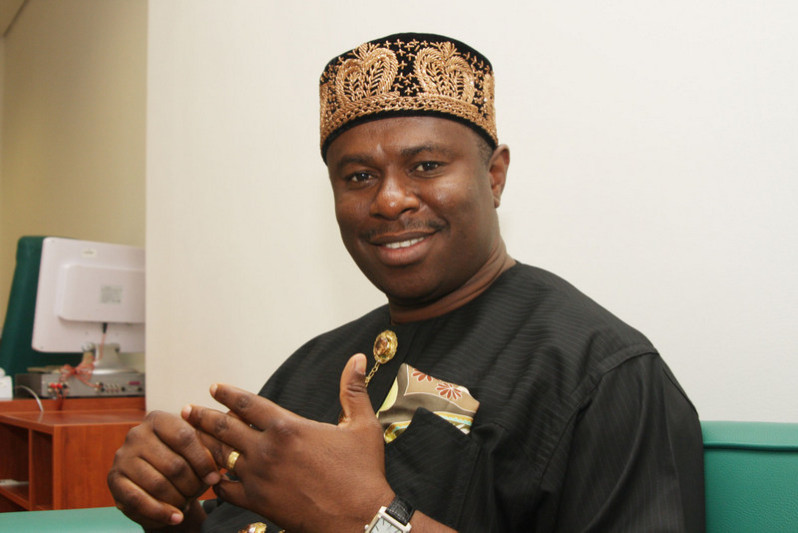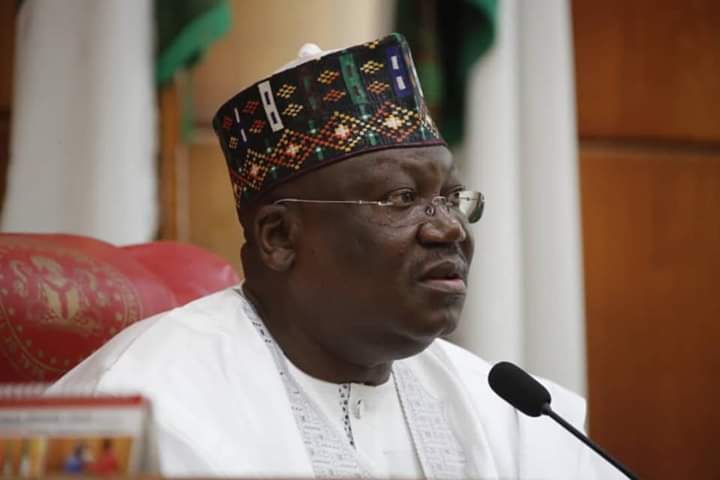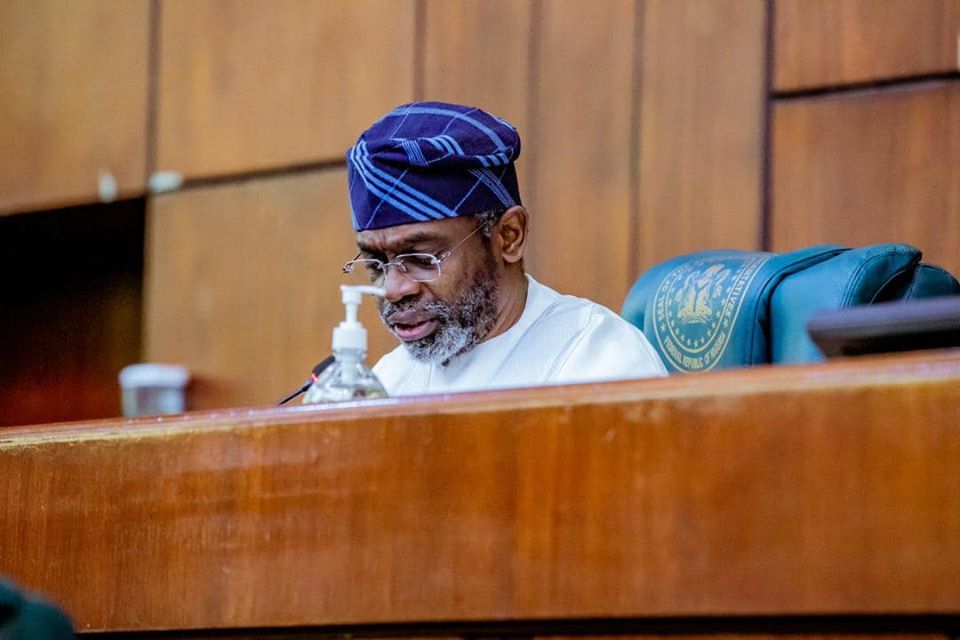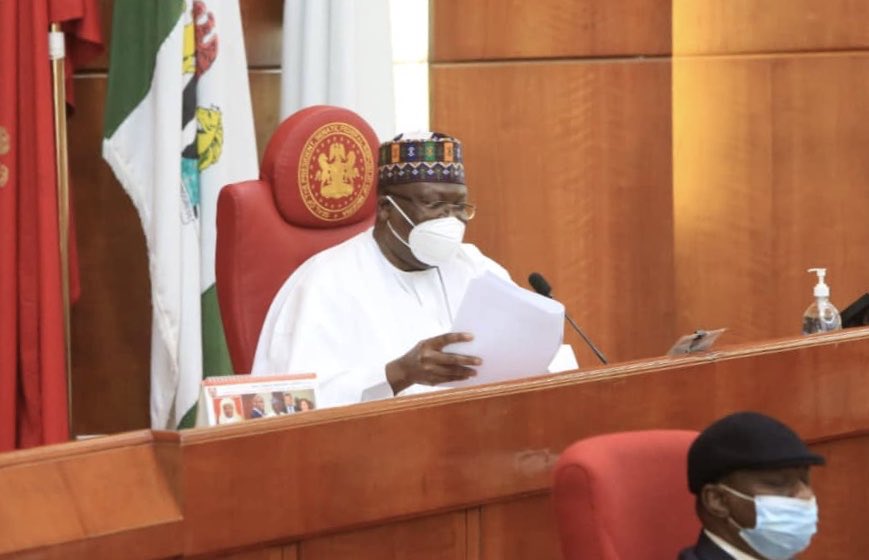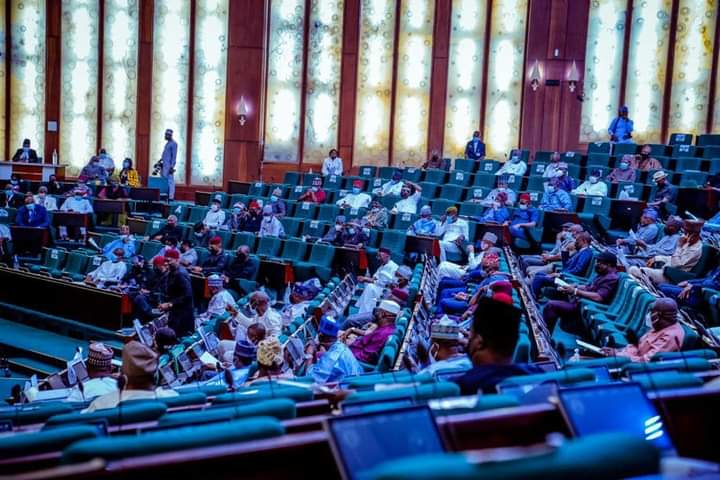In my last media Intervention during the last week of December 2021, titled: “Electoral Act Amendment Bill: Interrogating The Ogbanje/Abiku Element” which was widely published in the mass media, l tried to decipher the reasons for the killing of the electoral act amendment bill five (5) times under the watch of the incumbent government at the centre.
l had surmised in the article that President Mohammadu Buhari, as the commander-in-chief of the armed forces of Nigeria, knew what you, fellow citizens and l do not know, hence he rejected the bill which he basically informed us contains anti-democracy elements.
Here is how l put it:
“That is perhaps owed to the fact that in his position as the president and commander-in-chief of the armed forces of Nigeria, he knows what we all do not know, so he has his reasons which he has tried to put across to us.”
Fellow Nigerians , l can testify that l now know what mr president knows about the potential inequity that the clause in the rejected bill mandating political parties to produce candidates for general elections, only through direct primaries, would foist on the political class. It is information that is not in the public space.
While, l was also perplexed as to why the outgoing governors who will be exiting the powerful governors forum are empowering a forum which they would cease to be members from May, 29, 2023, the puzzle is now solved as the pressure mounted by governors on president Buhari not to append his signature to the rejected bill was beyond the selfish interest of leaders of government at state levels. So, l am no longer confounded about the reasoning behind the governors interest in allegedly prevailing on president Buhari not to append his signature to the Electoral Act Amendment Bill 2021, which had direct primaries as the only process of producing candidates for general elections.
And I will throw more light on that shortly.
Before then,here is how l had wondered aloud about why governors are interested in sustaining indirect primaries, in the same earlier cited piece :
“I am expressing that curiosity because it is basically through indirect primaries that governors can wield influence in determining who becomes the president, senator or house of representatives member”
“As most of the current governors are in the terminal stages of their tenure, after which some of them that may not make it as the President, Vice President of Nigeria or party chairman end up as senators, it does not add up that they want to bestow so much power on the governors , a power block that they will not be part of in 2023.”
As evidenced by the conclusion above , I suspected that there was a catch to governors supporting a cause that they do not stand to profit from directly.
What l could not figure out at that time is that the APC governors are collectively fighting for the soul of the ruling party to prevent it, and to some extent the entire Nigerian political system from being hijacked by those who could attract and mobilize more members for the party in their respective states.
Ideally, attracting and registering more members for the party and leveraging the number for one’s advantage should not be an anathema . That is because , it is in consonance with the democracy dictum: majority carries the vote. But just like free market can not be without some level of regulations, majority carries the votes principle of democracy can not be unmoderated. Hence the free rein which direct primaries could have engendered is being managed for the good of the ruling party at the center and hopefully for the Nigerian political class as a whole.
It is in the light of the above that l had rationalized that the ruling party might have caused a settlement agreement to be reached between the presidency and its legislators, before president Buhari rejected the bill.
The assertion above is underlined by the fact that the party at the center , APC controls majority of the members in both the senate and House of Representatives, hence it has been able to convert the electoral act amendment bill 2021 debate into a ‘family affair ’
As we all know , converting an official matter to a family affair is an euphemism for a resort to the compromise of the ethos of democracy or applying ‘political solution’ as opposed to adhering to the spirit and letter of the principles of democracy. So, it was sheer foolhardiness on my path to deign to assume that the legislators would suddenly grow from boys to men and override the president’s veto as the previous NASS did with the NDDC bill that became an act after then president Olusegun Obasanjo’s veto of the bill was discountenanced or set aside by NASS during his reign.
In the instant case, as the executive arm has captured the legislative and judiciary arms of government through a series of radical actions against former CJN , Walter Onoghen and ex senate president, Bukola Saraki, who were considered a torn on the flesh of the executive arm, and were literarily neutralized by being booted out.
These actions which some have averred as being unwholesome and inimical practices that portend danger for democracy took place mostly in the course of the first term of president Buhari’s presidency. Those behind-the-scenes maneuvers no doubt stymied the counter balancing powers of the two other arms of government which is considered an anathema in a true democracy. But coming together as a force of common good to disallow direct primaries as the only option for producing candidates that is deemed as a common threat to both the executive and legislative arms of government, is a positive development.
It is not surprising that the collective effort of both the executive and legislative arms of government to kill the resort to direct primaries is being welcome by a broad spectrum of Nigerians including the clergy man , Hassan Kukah and some civil society organizations that had initially kicked against it.
With hindsight benefit , l have realized that all the time that senators from the opposition party, PDP were shouting themselves hoarse that the 73 votes (signatures) required to override the president’s veto had been secured, Aso Rock Villa must have been laughing in vernacular-apologies to ex president Olusegun Obasanjo who is a veteran of such derisive laughters.
That is simply because following the discovery of the negative value intrinsic in the resort to the application of only direct primaries in producing candidates , the ruling party at the centre , APC converting the matter into a family affair , took it out of the influence of the main opposition party , PDP.
In any case , other legislators from the parties must have by now been apprised of the truth about the Electoral Act Amendment bill, 2021 and some of it’s toxic contents.
So, as the popular saying goes , by killing the Electoral act amendment bill, 2021, the APC might have killed a rat without spilling its blood, metaphorically.
Thus, the critical electoral act amendment bill, 2021 that has the capacity to give the growth of democracy in our clime a quantum leap, and which could have been another opportunity to deepen democracy in our country, which was on the cusp of an evolution through direct primaries, has been sacrificed on the alter of narrow interests premised on the belief that Nigeria is not ripe for such practice. That is one way of looking at the presidential veto.
As pragmatic as that assessment may be , there is another school of thought which is of the belief that at such a critical juncture on the life our country, our leaders should be patriotic by taking a wholistic and altruistic approach to nation building. But the highly partisan NASS, dominated by the APC, which is monolithic, is working assiduously to stamp it down.
It is an attribute that mimics the Republican Party in the USA that is increasingly looking like a cult group and a torn in the flesh of the ruling Democratic Party, by constituting itself into a sentinel of sorts, that is determined to thwart the lofty plans of US president, Joe Biden , such as his build back better infrastructure bill . Given the nature of politics and what we can observe and learn from the USA from where Nigeria borrowed the presidential system of governance, we need no enlightenment by any soothe sayer, before understanding that the electoral act amendment bill 2021 would likely continuously be an Ogbanje/Abiku, (be born and get killed )as long as it is in any shape or form that is in conflict with the narrow interests of the ruling party, APC or is considered to have the capacity to imperil the political system in any shape or form.
In the course of digging deep into why the electoral act amendment bill , 2021 was not accented to by president Buhari , l have also come into the knowledge that the reason the executive and legislative arms of government seem to be working together without friction under the watch of president Buhari is that the leadership under senate president, Ahmed Lawan and House of Representatives speaker, Femi Gbajabiamila have entered into a sort of pact with the executive arm of government to work together without antagonizing each other as was the case with the the 8th assembly that was at daggers drawn with executive arm.
What that means is that there is a deliberate effort by both arms to function more cooperatively by having standing committees with members from both the executive and legislative arms of government along with the primary agency that would implement the policy-end user also being a member of the cohort.
For instance, in the case of the electoral act amendment bill , INEC which is the end user or implementing agency is part of the standing committee.
I understand that it is one of methods that NASS and the presidency adopted with the aim of being on the same page when policies or bills are being prepared from infancy to maturity. A similar strategy was applied to resolve the Petroleum Industry Bill, PIB, now Petroleum Industry Act, PIA that had been on the drawing board since the return of multi party democracy since 1999.
That strategy, if l may refer to it as such , is supposed to be a proof that the NASS is not a mere rubber stamp as the legislators have been coming across to most observers, since they appear to be looking like yes men and women by not being seen to be scrutinizing proposals floated by the presidency via critical debates on them, as they should.
By the same token, the judiciary seem to be in acquiescence or hand in gloves with the presidency as it is not known to have barked, how much more bite the executive arm of government.
As a democracy advocate , it appears to me that such arrangements are tending towards being dereliction of duty on the part of all the arms of government.
Put succinctly , the three arms of government appear to be reducing their constitutional role that made it obligatory for each of them to be counterbalancing each other, to a mere perfunctory activity.
As such, instead of strengthening democracy by strictly observing the tenets, the special arrangements may be watering down the benefits of separation of power that is the bulwark of democracy.
Wherever the case may be, it is debatable whether such arrangements that whittle down the principle of separation of powers which is a canon of democracy are beneficial to us as a nation or only serving the selfish political interests of the present political leadership of our country. Whatever the case may be , it is another kettle of fish for interrogation on another date.
Nevertheless , any country operating a democratic system is at liberty to tweak with the original system to suit her peculiar needs, depending on the national interest,local dynamics and circumstances in the clime .
However, we must all be wary and vigilant of the potential corrosive effects of such practices or innovations on the fundamentals of democracy.
And the intervention via this essay is to awaken the senses of fellow democracy advocates to the danger that such compromise arrangements portend for our nascent democracy.
Before proceeding further , it is apropos at this juncture that l point out that contrary to the statement credited to the newly minted PDP chairman, senator, Iyochia Ayu that the ruling party at the center APC plans to rig the 2023 presidential election, hence president Buhari failed to advance the Electoral Act Amendment bill 2021 into law. l would like to announce that it is much deeper than that.
In fact it is for APC’s own internal reason that the restriction of the process of choosing contestants for political offices by political parties strictly via direct primaries, instead of the freedom to choose from the three options of direct , indirect and consensus is rejected by president Buhari.
Unlike when my analysis was based on conventional wisdom , hence l was astounded by the befuddling conclusions from my trend analysis that are in tandem with most of the excuses advertised as the reasons that weighed down president Buhari’s hand, hence he was unable to sign the bill into law; l am now in a better position to share with readers the real and weighty debilities (if l may refer to them as such)that compelled mr president not to assent to the bill that was transmitted to him on the 19th of November , 2021.
At this juncture, allow me put some meat on the bone:
It may be recalled that the ruling APC under the chairmanship of former governor of Edo state , Adams Oshiomole, the party embarked on membership drive.
It was an initiative hailed by most pundits.
But the motive for the initiative was not really altruistic. Rather it is self serving to particular interest groups.
With the introduction of technology into the election process, ballot box snatching and stuffing as well as writing of election results even before they were held, using alternative result sheets which was once the vogue, have become obsolete.
But since human beings must keep trying to find ways to circumvent the rules by bending without breaking them , no matter how iron clad the rules are , new strategies that are more sophisticated are usually devised to breach the system.
And it so happened that the tactics of leveraging larger membership base to gain advantage in producing candidates using direct primaries , deemed in some quarters as a sophisticated way of rigging at internal party level , almost slipped through the system to become law. It was executed through some clever maneuvering in the House of Representatives, until it was killed after it had landed on the desk of president Buhari in Aso rock villa.
If president Buhari had assented to the electoral act amendment bill , 2021 with the clause prohibiting other options except direct primaries as the only process of producing candidates, the ruling party at the center APC would have been in for a shocker as the leader of the party , president Buhari might not have had a say in who becomes the next president after him .
That is simply because, for instance , at the end of the membership registration exercise, Lagos state had registered 4.5 million members , Kano state recorded 4.2 million members while Delta state garnered a paltry 350,000 members and so on and so forth.
For the purpose of this analysis, l would confine my self to sharing with readers, the APC membership registration figures for the three states listed above.
Take note that in a direct primaries option , the registered members of the party are the delegates. That is contrary to the process of indirect primaries whereby only party executives, elected representatives and government appointees from wards to local government and state levels are the delegates. Naturally , where there is no higher elected or appointed person in the state , the governor is the leader. But where there is a higher authority that person is the leader of the state, and he or she controls the delegates.
When the conduct of indirect primaries is applied , the number of delegates from all the states are near parity.
On the contrary , where direct primaries is adopted , the more members a state can mobilize on its membership list , the higher the number of delegates that it would present at a national convention to elect a presidential candidate in party primaries. Consider a hypothetical scenario whereby the leader of APC in Lagos state decides to run for the presidency and chooses the leader of APC in Kano state , who is the current governor as his running mate. Between both of them, they can muster about 8.5 million votes.
If that happens , winning the primaries would be a fait accompli for the candidates from the states with the two highest number of registered voters-lagos and Kano if they decide to team up . Thus the next presidential candidate of the APC could emerge without the input of the president who is supposed to be the leader of the party.
In effect , president Buhari would be undermined or undercut as he would have no say on who succeeds him as president of the federal republic of Nigeria of direct primaries were to be adopted as enshrined in the Electoral Act Amendment Bill, 2021 that president Buhari vetoed in 21/12/2021.
That is simply because even the whole of the states in the rest of the south south, and south east may not be able to generate the votes that could match the number of votes coming from just the two states of Lagos and Kano.
In the event that such happens, assuming the option of direct primaries was adopted as it was captured in the rejected bill, president Buhari would not be able to realize his plan of determining who would be the next president, a person who he stated in a recent Channels television interview that he already knows , and prefers to hold back the identity because he does not want the person eliminated.
According to president Buhari in the earlier referenced tv interview “I will not tell you, (who the next president would be) because he may be eliminated if I mention his name.”
Even as l do not intend to go into further details at this point, it is manifestly clear from the comment above that president Buhari already has in mind who would be the APC presidential candidate of the APC in 2023.
It may be recalled that , former Military president, lbrahim Badamasi Babangida, lBB had also shared on Arise tv, his definition of who should be the next president. However, lBB’s view is not as weighty as that of the incumbent president, Buhari who is the current holder of the lever of political power.
So dear readers, the real reason that the electoral act amendment bill , 2021 has been guillotined is that direct primaries would make president Buhari loose control of the party such that he would not be able to have any influence or control over who succeeds him as president in 2023, since rogue elements in his party would have literarily pulled the carpet from under his feet.
That in my view is not a space that any leader would like to be. Every other reasons being advanced ranging from the notion that direct primaries contravenes the ethos of democracy which is about freedom of having multiple choices; direct primaries is too expensive to fund in light of the dwindling financial resources available in government (despite CBN resort to printing money) and ministry of finance increasing VAT rate and introducing new taxes (sugar tax)as well as the proposed increase in fuel pump price , guaranteed to over burden the already very weary citizens.
By the way , the aforementioned pernicious taxes are being imposed to support big government as opposed to doing the ideal thing which is reducing the cost of governance by streamlining Ministries, Departments and Agencies , MDAs that is throwing up humongous over head costs hence very little is left to fund capital projects which are basically infrastructure such as roads , rail and electricity which are basically employment generating activities which president Buhari appear to be very determined to score high points before his exit from Aso Rock villa in 2023 .
The other reason touted to justify president Buhari ‘s decision not to sign off on the bill, as presented by NASS , is that it is too dangerous to risk the lives of voters as they may be exposed to the danger of being attacked by bandits -recently designated as terrorists.
On that last point, l would like to point out that it may be hypocritical since the same voters being considered as too endangered to queue up to vote during party primaries would be expected to queue up to vote in general elections as they have done in 2015 and 2019.
The truth is that the foregoing excuses are merely what is usually referred to in the world of business as ‘corporate speak’.
It does not necessarily mean it is the true position of things .
That is to say that the above advertised reasons for rejecting the bill as contained in president Buhari’s memo of 21 December, 2021 to the National Assembly, NASS can be classified as official APC party position aimed at hoodwinking the undiscerning .
If the ‘political coup’ of making the process of political parties producing contestants exclusively via direct primaries had materialized, it would have been akin to what happened to former president olusegun Obasanjo, OBJ who lost control of the party and political system after governor’s checkmated him, some say for not keeping to the bargain that he made with them for both president and governors to get a third term in office. It may be recalled that the governors worked with lawmakers from their respective states to pull the plug on then president’s proposed third term agenda exclusively for the office of president which then senate president Ken Nnamani executed perfectly by ensuring that the bill failed to sail through, and which was to the shock and chagrin of president Obasanjo who did not see it coming as he thought he had the deal sealed without being cognizant of the fact that politics about interests which are never permanent.
Just like the current attempted ‘political coup’ against Buhari barely 17 months to the end of his tenure , the OBJ debacle also occurred at about same lame duck period.
Another point which needs to be made is that if president Buhari and the APC are so keen on complying with democratic ethos, hence they are insisting that the electoral act amendment bill , 2021 must reflect the freedom of choice by giving political parties the three options of direct , indirect and consensus ; how come the conduct of a referendum which is a critical component of democracy being agitated for by Indigenous People of Biafra, IPOB is not accepted? For the sake of equity and justice , the application or observance of democracy tenets should not be selective . So, as mr president is currently insisting that the three options of direct , indirect and consensus options must be applied in political party primaries for the sake of upholding the tenets of democracy , is it not curious that rather than accepting that a referendum which is a fundamental component of democracy should be conducted , lPOB was proscribed and thousands of lgbo youths involved in the struggle have been sent to their early graves by government security forces and their leader , Nnamdi Kanu is languishing in jail?
Ditto for Sunday lgboho, another crusader for the creation of Oduduwa nation exclusively for the Yoruba ethnic nationality?
For the umpteenth time , let me restate that l don’t subscribe to the splitting up of our beloved country which is the mission of Nnamdi Kanu and Sunday Igboho. And l can even go further to wager a bet that if a referendum on Biafra or Oduduwa nations were to be allowed to be conducted , voters on the side of Nigeria remaining one indivisible country, would prevail.
That is simply because the lgbos , Yorubas and the Hausa/Fulani that need to have a huge market to sell their cattle are aware that it is in their best interest to remain in one Nigeria.
But in the case of the lgbos which is peculiar , they need to be given a sense of belonging by offering them the chance to take a shot at the presidency as was the case in 1999 when both Olusegun Obasanjo of PDP and Olu Falae of APP both of whom are of Yoruba origin were allowed,with the exclusion of other nationalities to contest for the presidency. It is needless restating the fact that the gesture assuaged the pain of Yoruba nation arising from the annulment of the June 12 , 1993 presidential election acclaimed to have been won by the amiable and popular philanthropist and business mogul turned politician, MKO Abiola who also lost his life in the ensuing struggle to claim his mandate.
And with respect to the Yoruba quest for Oduduwa nation, as l understand it, lgboho is fighting inequality in the polity bordering on hegemony by a particular ethnic group over other members of the Nigerian union and he is also aiming to secure Yoruba forests from being taken over by bandits, violent herdsmen and other criminal elements that have taken over similar forests in the northern parts of our country.
On the issue of finding suitable presidential candidates, and in a situation where there is an apparent dearth of ideal ‘presidential
material’ of lgbo extraction, based on some universal minimum requirements, l had proposed for the main opposition party , PDP a hybrid or a short cut pathway to the presidency for the lgbo via a unique partnership with former Vice President Abubakar Atiku , Turaki Adamawa, who has the political clout and financial muscle, (a successful businessman/politician that has vied for the presidency up to four times and in nearly three decades) therefore has the momentum to build upon to breast the tape ahead of his competitors in the presidential race in 2023.
Unfortunately, that formula -Atiku presidency with lgbo Vice President-is currently facing headwinds as PDP governors are said to be in quandary as to weather or not to adjust their position in the light of the prevailing political dynamics in the country which compels the return of presidential power from the north to the south . The good news is that politicians on both northern and southern divides appear to be poised to return power to the south , and president Buhari’s body language tends to suggest that he would like to hand over to someone from the south east.
In my assessment, that person is unlikely to be a professional politician or a core lgbo person.
That is all l can say for now as other details would unfold during the much delayed APC convention, if it is held next month or in weeks and months ahead.
Meanwhile, Nigerians are holding their breathe as politics takes the center stage, and governance recedes beginning from now to May 29, 2023.

